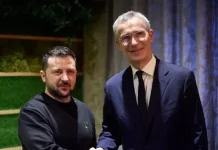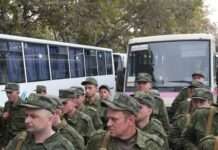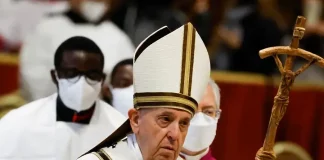EU ministers concur to move forward with further sanctions against Russia.
After President Vladimir Putin ordered the nation’s first wartime mobilization since World War Two to fight in Ukraine, the European Union’s foreign ministers agreed on Wednesday to seek additional sanctions against Russia and increase the delivery of weapons to Kyiv.
The 27 foreign ministers of the bloc are in New York for the yearly summit of world leaders at the UN.
Josep Borrell, the head of the EU’s foreign policy, said that Putin’s declaration, which contained threats to use nuclear weapons to defend Russia and attempts to grab large portions of Ukrainian land, revealed panic and desperation.
After ministers had a meeting to discuss how to react, Borrell told reporters, “It’s clear that Putin is trying to destroy Ukraine.”
The foreign ministers agreed to assign their teams to create an eighth sanctions package that would target “more relevant sectors of the Russian economy and continue targeting people responsible for the war of aggression in Ukraine,” after receiving an update from Dmytro Kuleba, the foreign minister of Ukraine.
EU ministers will meet again in mid-October, possibly to approve a sanctions package.
The ministers also agreed to increase weapons supplies to Ukraine. Borrell refused to elaborate on the specific sanctions or military assistance but stated that he believed new measures would have “unanimous” approval within the bloc.
Putin was attempting to terrify and polarize the West, but his most recent remarks were a “game-changing moment,” according to Estonian Foreign Minister Urmas Reinsalu in an interview with Reuters.
Mid-October will be the next official meeting of EU ministers, at which a formal sanctions package may be announced.
He said the focus of the conference on Wednesday should be on unity, that a fresh round of sanctions should be implemented promptly, and that Ukraine should get more weaponry through the European Peace Facility funding mechanism.
“We should also declare the commitment of legal responsibility. The fuhrers in the Kremlin should not take it for granted that their accountability for the genocidal war should be taken mildly,” he said.
Maintaining unity among the 27 for a sanctions package may prove difficult in light of the bloc’s severe energy supply crisis. Tuesday saw Hungary reject the notion.
“It’s different now,” Reinsalu said. “There is a saying in aviation that regulations are written with the blood of victims of air catastrophes. Well all the (sanctions) packages are written with the blood and atrocities Russia has committed.”








